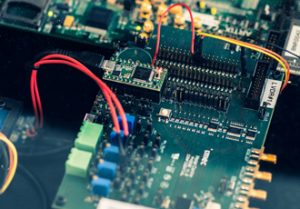
News
Imec and Arm develop ultra-low-power radio

Designed for IoT applications demanding very low power consumption, such as leave-behind sensors or wearables, the solution demonstrates industry compatibility of these novel, highly energy-efficient radios.
The digital transformation that is currently happening at all levels of our society, is urging the need for specialty radios that have an extremely low power consumption. These will be used in battery-powered IoT devices such as leave-behind sensors in infrastructure, smart wearables or even implantables.
Reducing power consumption and enabling operation at low supply voltages is key to extend lifetime of these devices, operating from low cost, single cell or even printed batteries. Arm’s heritage in low-energy IP makes them a perfect partner for imec.
In the race for the lowest energy consumption, imec’s frontend components, such as the digital phase-tracking receiver technology presented at the renowned conference ISSCC 2018, are leading. While designed to be used in next generation Bluetooth and IEEE 802.15.4 products, they combine an unparalleled low power consumption, low cost and high performance.
High energy efficiency and low supply voltage operation at 0.8V is achieved, while maintaining similar RX sensitivity as best-in-class products.
As one of the salient characteristics, imec’s RF frontend employs a novel phase-tracking receiver to directly translate the RF input to demodulated digital data.
The receiver has been implemented in 40nm CMOS and features a 3x smaller area thanks to this novel front-end architecture, further reducing device costs.
For wearable or implantable devices, where the antenna impedance can vary due to changes in a device’s position or surroundings, imec has developed a sub-mW on-chip impedance detection technique that further improves receiver sensitivity and transmitter efficiency.